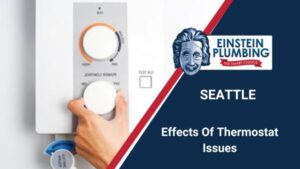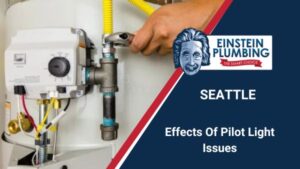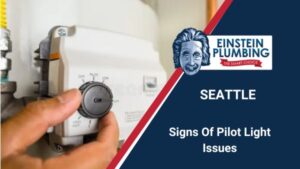When preparing for heating installation services in Bend, a systematic approach is essential to guarantee a smooth process and optimal performance. This pre-installation checklist serves as a comprehensive guide to help you navigate through the essential steps before getting your water heater up and running as well as providing you with a list of advantages why you should get a tankless water heater.
1. Site Assessment:
Conducting a Thorough Site Assessment:
Before embarking on the water heater installation journey, it’s crucial to conduct a comprehensive site assessment. Examine the designated location for any potential challenges or safety concerns. Ensure that the installation site adheres to local safety and regulatory standards. Identify the presence of flammable materials, electrical wiring, or other potential hazards that might impact the placement of the water heater.
Ventilation and Clearances:
Proper ventilation is essential for the efficient operation of the water heater. Check the manufacturer’s specifications regarding ventilation requirements and clearances. This includes ensuring adequate space around the water heater to facilitate proper air circulation and maintenance access. Failing to comply with these clearances may lead to decreased efficiency and potential safety hazards.
Hazard Identification:
During the site assessment, identify any potential hazards that could affect the installation or the ongoing operation of the water heater. This includes checking for gas leaks, flammable materials, or other safety risks. Addressing these issues before installation mitigates the risk of accidents and ensures a safe operating environment for the water heater.
2. Proper Sizing:
Household Requirements:
Determining the correct size of the water heater is a critical step in the pre-installation process. Consider the specific needs of your household, including the number of occupants, daily water usage patterns, and peak demand times. This information helps in selecting a water heater with the appropriate capacity to meet the demands of your household comfortably.
Sizing Charts and Guidelines:
Manufacturers provide sizing charts and guidelines to assist consumers in choosing the right water heater for their homes. These charts take into account factors such as the number of bathrooms, kitchen appliances, and overall water consumption patterns. Refer to these resources to ensure that the selected water heater aligns with the size requirements for your household.
Future Growth Considerations:
When sizing your water heater, it’s wise to consider potential changes in household size or water usage patterns. Selecting a water heater with a bit of extra capacity can accommodate future growth, ensuring that the system remains sufficient even as your household evolves.
3. Energy Source and Type:
Choosing the Energy Source:
The energy source for your water heater plays a significant role in its performance and efficiency. Evaluate the available options, such as electricity, gas, solar, or heat pump. Consider factors like availability, cost, and environmental impact when making this decision.
Selecting the Water Heater Type:
Once the energy source is determined, the next step is to choose the type of water heater. Options include traditional tank-type water heaters and tankless water heaters. Tankless water heaters, known for their energy efficiency and on-demand hot water supply, have gained popularity. Consider your preferences and energy efficiency goals when selecting the most suitable water heater type for your home.
Regulatory Compliance:
Ensure that the selected water heater type complies with local building codes and regulations. Different regions may have specific requirements for the installation of water heaters, especially those using gas or alternative energy sources. Familiarize yourself with these regulations to avoid complications during installation and ensure the safety and legality of your system.
4. Plumbing System Assessment:
Compatibility Check:
Examine the existing plumbing system to confirm its compatibility with the new water heater. Ensure that the connections align with the specifications of the chosen water heater type. This includes checking pipe sizes, connection points, and the overall condition of the plumbing system.
Leak and Corrosion Inspection:
Perform a thorough inspection of the plumbing system for any signs of leaks or corrosion. Addressing these issues before installation prevents potential water damage and ensures the longevity of the water heater. If leaks or corrosion are detected, it’s advisable to repair or replace the affected components before installing the new unit.
Water Pressure Verification:
Verify that the water pressure in your plumbing system falls within the recommended range for the selected water heater. High or low water pressure can affect the performance and efficiency of the unit. If necessary, install a pressure-reducing valve or take corrective measures to ensure the water pressure meets the manufacturer’s specifications.
5. Electrical or Gas Connections:
Electrical System Capacity:
For electric water heaters, assess the capacity of the existing electrical system to ensure it can accommodate the additional load. If the system is insufficient, consider upgrading the electrical panel or consulting with a qualified electrician to make the necessary adjustments.
Gas Line Sizing:
If opting for a gas water heater, confirm that the gas line is appropriately sized to provide an adequate supply of fuel. Undersized gas lines can lead to performance issues and potential safety hazards. Consult with a licensed professional to assess and, if necessary, upgrade the gas line to meet the requirements of the new water heater.
Professional Adjustments:
Electrical and gas connections require precision and expertise. It is strongly recommended to hire a qualified professional to handle any adjustments to the electrical system or gas lines. DIY attempts in this area can lead to safety hazards, code violations, and potential damage to the water heater.
6. Water Quality Considerations:
Water Quality Testing:
Test the water quality in your area to identify any issues that might impact the performance and lifespan of the water heater. Factors such as hardness, mineral content, and sediment levels can vary. Conduct water tests to determine if water treatment devices, such as water softeners or filters, are necessary to maintain optimal water heater efficiency.
Water Treatment Devices:
Based on the water quality test results, install water treatment devices as needed. Water softeners, sediment filters, or other treatment systems can prevent mineral buildup inside the water heater, enhancing its efficiency and extending its lifespan. Adhering to the manufacturer’s recommendations regarding water quality ensures the unit operates at peak performance.
Warranty Implications:
Be aware of the water quality requirements outlined in the manufacturer’s warranty. Some warranties may be contingent on maintaining specific water quality standards. Failing to meet these standards could void the warranty. Understanding and adhering to these conditions are crucial for preserving warranty coverage and protecting your investment.
7. Ventilation and Combustion Air:
Importance of Proper Ventilation:
Proper ventilation is paramount, especially for gas water heaters, to prevent the accumulation of harmful gas like carbon monoxide. Follow the manufacturer’s guidelines on ventilation requirements to ensure the safe operation of the unit. Inadequate ventilation can pose serious health risks and compromise the efficiency of the water heater.
Combustion Air Supply:
Verify that there is an adequate supply of combustion air for gas water heaters. A sufficient air supply is essential for the combustion process and the safe expulsion of combustion byproducts. Insufficient combustion air can lead to incomplete combustion, increased carbon monoxide production, and potential safety issues.
Venting System Installation:
Install the venting system according to the manufacturer’s specifications and local building codes. The venting system plays a crucial role in expelling combustion byproducts safely. Improper installation can result in backdrafting, where exhaust gases re-enter the living space, posing health hazards. Ensure the venting system is correctly sized, sealed, and terminates outside as per the guidelines.

8. Compliance with Local Codes:
Understanding Local Building Codes:
Familiarize yourself with local building codes and regulations pertaining to water heater installations. Different regions may have specific requirements for gas lines, venting, electrical connections, and other aspects of the installation process. Adhering to these codes is essential for ensuring the safety and legality of the installation.
Obtaining Necessary Permits:
Before commencing the installation, check if any permits are required for the water heater installation. Obtain the necessary permits from the local building department to ensure compliance with regulatory requirements. Failure to secure permits can result in fines, legal complications, and difficulties with insurance coverage.
Safety Standards Adherence:
Adhere to safety standards outlined in local codes and regulations. These standards cover various aspects of the installation, including clearances, ventilation, and safety features. Following safety guidelines helps prevent accidents, protects occupants, and ensures the water heater operates within established safety parameters.
9. Accessibility for Maintenance:
Planning for Accessibility:
Plan for easy access to the water heater to facilitate routine maintenance tasks. Adequate space around the unit allows for visual inspections, cleaning, and servicing without difficulty. Accessibility is crucial for addressing issues promptly and ensuring the longevity and efficiency of the water heater.
Sufficient Maintenance Space:
Ensure that there is sufficient space around the water heater for maintenance activities. This includes clearance on all sides, as specified by the manufacturer. Creating a designated maintenance space prevents hindrances during inspections, repairs, or component replacements. Check the manufacturer’s guidelines for the recommended maintenance space requirements.
Manufacturer’s Maintenance Recommendations:
Familiarize yourself with the manufacturer’s maintenance recommendations. Each water heater model may have specific requirements for routine upkeep. Regular tasks may include flushing the tank, inspecting and replacing anode rods, and checking for leaks. Adhering to these recommendations prolongs the lifespan of the water heater and helps maintain its efficiency.
10. Professional Heating Installation Services:
Importance of Professional Installation:
Consider the advantages of hiring licensed and experienced professionals for the water heater installation. Professionals from Einstein Plumbing bring expertise, knowledge, and the necessary skills to ensure a safe and efficient installation process. While DIY installations may seem tempting, professional services reduce the risk of errors, safety hazards, and long-term complications.
Obtaining Multiple Quotes:
Before finalizing your decision, obtain multiple quotes from reputable heating installation services. Compare the costs, services, and warranties offered by different providers. This allows you to make an informed decision based on your budget, preferences, and the reputation of the installation professionals.
Verifying Credentials:
Verify the credentials of the installation professionals before hiring. Ensure they hold the required licenses and certifications for handling electrical or gas connections. Additionally, confirm that the installation team has insurance coverage. Hiring qualified professionals minimizes the risk of installation errors, ensures compliance with regulations, and provides peace of mind regarding the safety and reliability of your water heater.
Why choose to install a tankless water heater?
Investing in a tankless water heater offers numerous benefits that cater to the modern homeowner’s preferences and lifestyle. Here, we explore the advantages of choosing a tankless water heater over traditional tank-type models.
Energy Efficiency:
One of the primary advantages of a tankless water heater is its energy efficiency. Unlike traditional tank-type heaters that constantly heat and reheat water, tankless models only heat water on demand. This results in significant energy savings as there is no standby heat loss associated with keeping a large volume of water continuously heated.
Endless Hot Water Supply:
Tankless water heaters provide a continuous and uninterrupted supply of hot water. Since they heat water on demand, there’s no need to worry about running out of hot water during long showers or multiple consecutive uses. This feature is particularly beneficial for larger households with high hot water demand.
Space-Saving Design:
Tankless water heaters are compact and space-saving compared to their traditional counterparts. Their streamlined design allows for installation in various locations, including closets, utility rooms, or even on walls. This flexibility in placement is especially advantageous for homes with limited space.
Longer Lifespan:
Tankless water heaters generally have a longer lifespan than traditional tank-type models. While tank-type heaters typically last around 10-15 years, tankless units can last 20 years or more with proper maintenance. This extended lifespan not only provides long-term reliability but also contributes to a lower total cost of ownership.
In conclusion
The successful installation of a water heater hinges on meticulous pre-installation preparations. Whether opting for a tankless water heater or a traditional tank-type, careful consideration of energy sources, proper ventilation, and adherence to safety standards are paramount. Heating installation services from Einstein Plumbing offer you reliability and trustworthiness that you need in order for your Bend home to stay warm even in winter. As you embark on this installation journey, remember that investing time and effort in the pre-installation phase pays off in the form of a reliable, energy-efficient, and long-lasting water heating solution.









